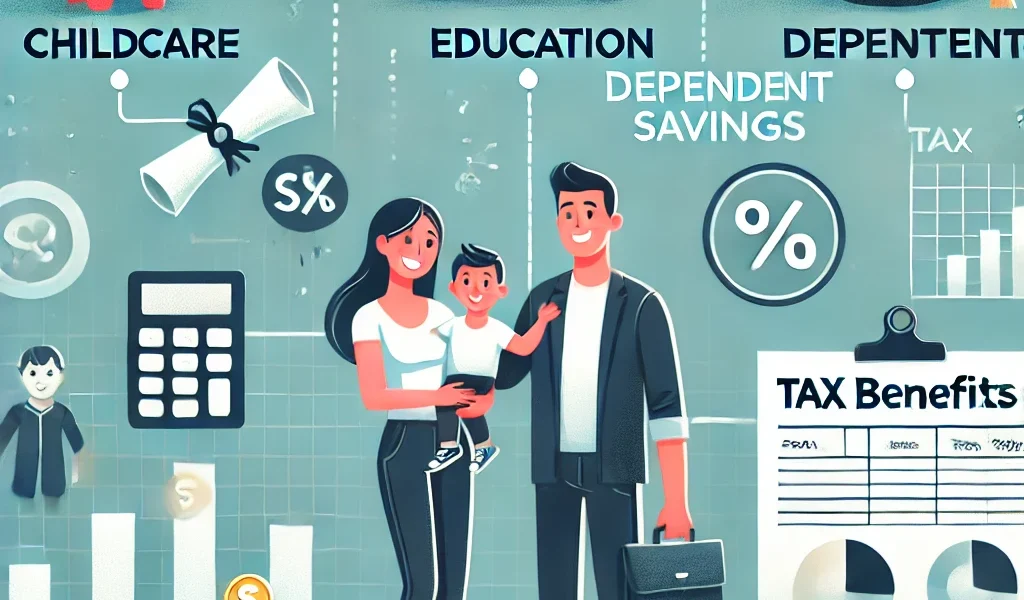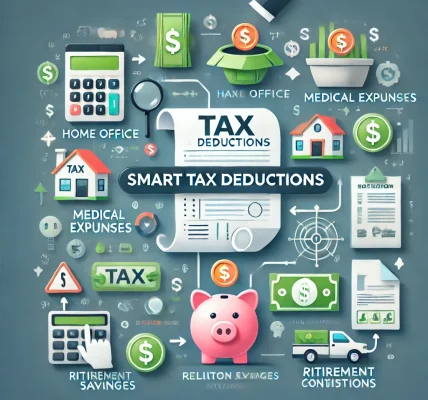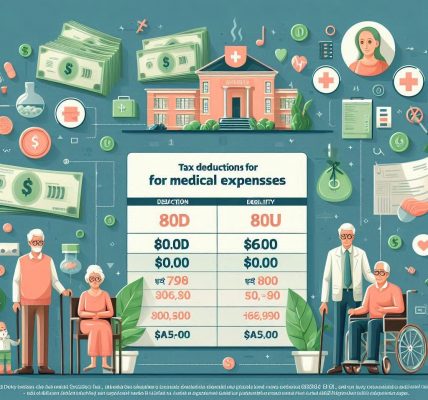Parenting is a rewarding yet financially demanding journey. Fortunately, tax laws provide various benefits that can help parents save money on childcare, education, and other expenses related to raising dependents. By understanding these tax-saving opportunities, parents can optimize their financial plans and reduce their overall tax burden.
This guide will walk you through essential tax benefits, deductions, and credits available to parents, ensuring you make the most of every opportunity.
Understanding Tax Benefits for Parents
Tax benefits for parents come in different forms, including tax credits, deductions, and exemptions. These can significantly lower your taxable income and, in some cases, even provide refundable credits that increase your tax refund.
1. Child Tax Credit (CTC)
The Child Tax Credit (CTC) is one of the most valuable tax benefits available to parents.
- For tax year 2023, eligible parents can claim up to $2,000 per qualifying child under age 17.
- Up to $1,600 per child may be refundable under the Additional Child Tax Credit (ACTC).
- To qualify, the child must be a U.S. citizen, national, or resident alien and live with the taxpayer for at least half of the year.
- Income phase-out begins at $200,000 for single filers and $400,000 for married couples filing jointly.
Action Step: Ensure that your child meets the eligibility criteria and provide the correct Social Security number when filing your tax return.
2. Dependent Care Credit (Child and Dependent Care Tax Credit)
If you pay for childcare expenses to enable you (and your spouse, if filing jointly) to work or look for work, you may qualify for the Child and Dependent Care Tax Credit.
- The credit covers up to 35% of qualifying childcare expenses, depending on your income.
- Maximum eligible expenses: $3,000 for one child or $6,000 for two or more children.
- Qualifying expenses include daycare, babysitters, nannies, and after-school programs.
- The child must be under 13 years old or have a qualifying disability.
Action Step: Keep all receipts and records of payments made to childcare providers.
3. Earned Income Tax Credit (EITC)
The Earned Income Tax Credit (EITC) provides additional relief to low- and moderate-income parents.
- Credit amount varies based on income and number of children.
- For 2023, the maximum credit is $7,430 for families with three or more children.
- Available to taxpayers with earned income under the set threshold (varies yearly).
Action Step: Check your eligibility using the IRS EITC Assistant tool and ensure that you claim the credit if you qualify.
4. Education Tax Benefits for Parents
Education-related tax benefits can help parents save on tuition, school expenses, and student loans.
A. American Opportunity Tax Credit (AOTC)
- Provides up to $2,500 per eligible student for undergraduate education.
- Covers tuition, fees, and course materials.
- 40% of the credit is refundable (up to $1,000 per student).
- Income phase-out: $80,000 – $90,000 (single), $160,000 – $180,000 (married filing jointly).
B. Lifetime Learning Credit (LLC)
- Covers up to $2,000 per tax return for tuition and education expenses.
- No limit on the number of years you can claim it.
- Income phase-out: $80,000 – $90,000 (single), $160,000 – $180,000 (married filing jointly).
C. 529 College Savings Plan
- Contributions grow tax-free.
- Withdrawals for qualified education expenses are tax-free at the federal level and may be exempt from state taxes.
D. Student Loan Interest Deduction
- Deducts up to $2,500 in student loan interest paid during the year.
- Income phase-out: $75,000 – $90,000 (single), $150,000 – $180,000 (married filing jointly).
Action Step: Keep track of tuition payments and educational expenses to claim the appropriate credit.
5. Adoption Tax Credit
If you adopted a child, you may qualify for the Adoption Tax Credit, which helps cover adoption-related expenses.
- Maximum credit: $15,950 per child for 2023.
- Covers adoption fees, court costs, attorney fees, and travel expenses.
- Income phase-out begins at $239,230 and is fully phased out at $279,230.
Action Step: Maintain detailed records of all adoption-related expenses.
6. Flexible Spending Accounts (FSAs) for Dependent Care
A Dependent Care Flexible Spending Account (FSA) allows parents to set aside pre-tax dollars for childcare expenses.
- Contribute up to $5,000 per household.
- Funds must be used for qualifying childcare expenses.
- Reduces taxable income, lowering overall tax liability.
Action Step: Enroll in an FSA through your employer and plan your childcare expenses accordingly.
7. Child Support vs. Alimony: Tax Implications
- Child support payments are not deductible by the payer and not taxable to the recipient.
- Alimony payments (for divorces finalized after 2018) are not deductible by the payer and not taxable to the recipient.
Action Step: If receiving or paying child support, ensure tax treatment is correctly reported.
8. Filing Status and Standard Deduction for Parents
Your filing status significantly impacts your tax benefits.
- Head of Household (HOH) status provides a higher standard deduction ($20,800 in 2023) and lower tax rates than single filers.
- To qualify, you must be unmarried and have a qualifying dependent.
Action Step: If eligible, file as Head of Household to reduce taxable income.
Final Checklist for Parents’ Tax Benefits
✔ Claim the Child Tax Credit if eligible.
✔ Utilize the Child and Dependent Care Credit for childcare expenses.
✔ Check eligibility for the Earned Income Tax Credit.
✔ Claim education benefits like AOTC, LLC, or 529 plan contributions.
✔ Deduct student loan interest if applicable.
✔ Use a Dependent Care FSA to save on childcare costs.
✔ Claim the Adoption Tax Credit if you adopted a child.
✔ Choose the best filing status to maximize deductions.
Conclusion
Understanding and utilizing tax benefits for parents can lead to significant savings. By taking advantage of available credits and deductions, parents can ease the financial burden of raising children and securing their future. Always consult a tax professional to ensure compliance with tax laws and optimize your tax savings strategy.




